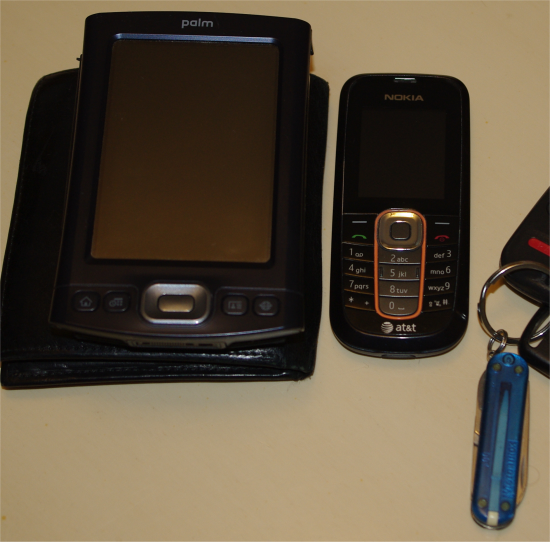Unless you’re retired, independently wealthy, making the effort to live off the grid, or some combination thereof, you’re eventually going to trust a faceless megacorp with your personal information.
Well, I say “a faceless megacorp.” I suppose you could spread it out among several, but you might as well not have as soon as you aggregate it, and even if you don’t someone else will.
So, which one, Bo?
Google was out immediately. They tell you right to your face that they intend to make all of the content in the world searchable.
As important as Apple was to me growing up, and as warmly as I felt about them as recently as 2007, I never seriously considered them either. I don’t care for their ceaselessly arrogant business practices. Also, Apple bigots are insufferable.
I went with Microsoft. My affection for their products is longstanding. I’ve spent my entire career in Windows shops. They don’t seem nearly as scary as Google, and they’re not nearly as arrogant as Apple. Why not? Plunge.
Turns out that might have been the scariest choice of all.
I learned in a recent John Dvorak column that the NSA appears to have access to Microsoft that is both broad and deep. The most damning allegation is that the NSA can bypass Microsoft file encryption at will.
Wow. Just…wow.
You know, I still have my Palm TX. It works perfectly. I even have a new spare battery for it that might still be good. Carrying it and a lowball candy bar phone is starting to sound pretty appealing.
You might also like:
- Microsoft needs polish in the Marketplace
Regular readers know that I’m a Microsoft bigot. I love Windows. I love Windows Phone. I love Xbox. … - Resist Google now
Last week my buddy Paul wrote an entertaining deconstruction of Google’s communication in the wake o… - Gee, turns out #Apple did slow down old iPhones
Confirming suspicions long held by many, Apple this week acknowledged its practice of deliberately s… - Ranting against telephony again
There tends to be benefit—better interoperability and so forth—in mostly or completely casting your … - Back on Facebook
I have a personal profile on Facebook again. It’s been more than two years since that was the case, …


This whole public revelation that privacy isn’t what most thought it was makes me a bit worried that people don’t realize the power of the technology their world relies on these days. The biggest issue we face, in my opinion, is that so much of our lives, including the information and meta information about said lives, has moved into “the cloud” (I hate that term so much…) of the “information super highway” while our behaviors, practices, and understanding of how to protect said information are trailing behind in 1983 (you see what I did there?).
Meanwhile, there are countries less than a century old that have blown past us in to the 21st century. The picture of that article pretty much says it all.
Our identities, whether we like it our not, are no longer private. We need to wrap our heads around that. We also need to understand that this does not mean we can’t protect it. Modern technology, including encryption, can vastly support having a very public identity while having it very well protected. Estonia is apparently a shining example of this.
If everyone in the country were issued a single smart ID card, it could enable us to simplify and strengthen our personal security in so many ways. Have the whole system be open source to allow for the scrutiny of those who have the know how and are willing to protect us from poorly implemented security. Now you’ve got a single system that can simplify your identity management allowing much safer banking, medical records storage, licensure, and secure information storage and communication.
Right now we attempt to do all of that with individually implemented, black box systems for each of the above categories, with varying degrees of success, mostly a lack there of.
Wouldn’t you rather, instead of your whole identity revolving around a number as simple as 123-45-6789, revolve around an ID like:
mQENBFHj9L4BCADbgiRa8HV+2fw+icdnSSwxF06R+zXoyg7qqov+d6wM4ZUlyrZq
VcyDm6L9ezi2uSwQS7vzKxoRM1huqiD9snxgfQrZP8/Fxi/jwwMOlDoGk9DTeKgA
jl1jHOmMgYhYNHBI/u2kHtkT2EzVi6MveNWAWON1NS1toFpsXemKE/Jj28wnt33p
PvaLcXzgp1YOOfORQh2L/k7eTPql7u3p4nZVc6+ay+ivwx8zPEYndCYKFgP5VTSr
ymgSguAKU6pDCsZb0HqOrneWSS72iLDyE0mu7UV1MY+SOUPediqY7MZgAotfFI5/
lwsL9lTsZJqiRm4tiyKgjpzFHCLpDQpi+LRxABEBAAG0EG5vdHJlYWxAbWFpbC5j
b22JARwEEAECAAYFAlHj9L4ACgkQjJnTgpIcIn09dggApL+/MeqdY5qAmZUKohv7
InxlEhf0o1FyYzcSRDoSikZDHlLc9yJpDg/GWNAUL3jZsf6j1kK2AYTspyhUZgqm
NBOyWAbBWxb03lvlELWl9Miz6LJnOKZBAUMwHof6QV02wd8k3AuwWhcT4aeHH11G
By+gZ+nLjnWPpKTf26jcS8n6nRdvDBzOdE/jNXbcmOUJxP149r9lBaTLldrdIZNp
Z3cyPc/mqrWejotRnEQscJxp2JSKVOfzbt8CxPivKZfUt3m4J/4zfuG3I+QR33YY
rgJGtHMIEvkH6DhSJotPVyvEAutWbpxPfgwfoA24PYQxpJAWM2RuoBS/t/jf1bXc
oQ==
=5Ozr
Which looks more secure? Because one of those is what the U.S. uses… and one of those is what Estonia uses.
Perhaps I should go and visit Estonia.
Tahm, interesting thoughts. I’ll mull.
Hey Lynda! Good to “see” you here. Hang a bit.